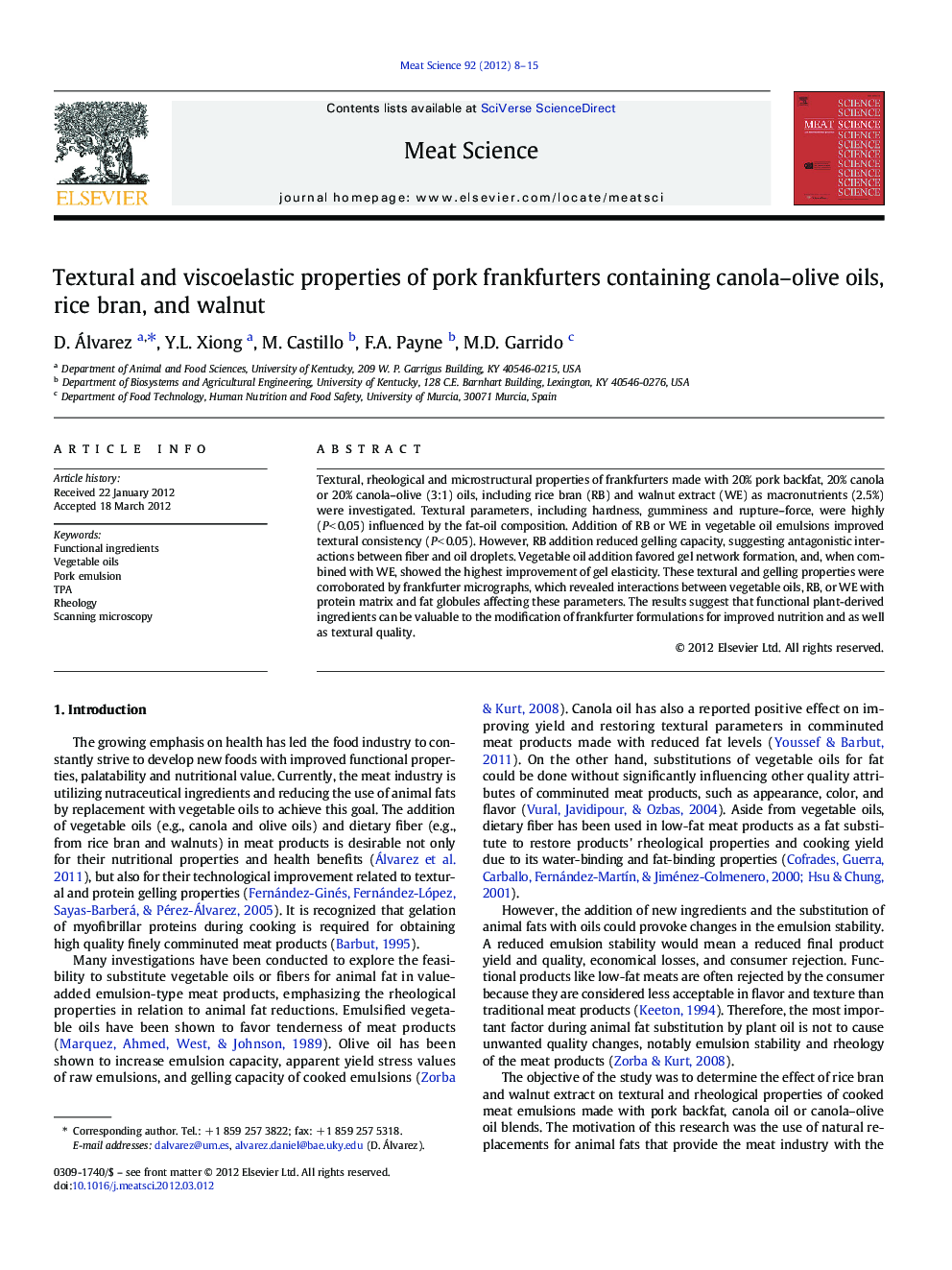| Article ID | Journal | Published Year | Pages | File Type |
|---|---|---|---|---|
| 2450130 | Meat Science | 2012 | 8 Pages |
Textural, rheological and microstructural properties of frankfurters made with 20% pork backfat, 20% canola or 20% canola–olive (3:1) oils, including rice bran (RB) and walnut extract (WE) as macronutrients (2.5%) were investigated. Textural parameters, including hardness, gumminess and rupture–force, were highly (P < 0.05) influenced by the fat-oil composition. Addition of RB or WE in vegetable oil emulsions improved textural consistency (P < 0.05). However, RB addition reduced gelling capacity, suggesting antagonistic interactions between fiber and oil droplets. Vegetable oil addition favored gel network formation, and, when combined with WE, showed the highest improvement of gel elasticity. These textural and gelling properties were corroborated by frankfurter micrographs, which revealed interactions between vegetable oils, RB, or WE with protein matrix and fat globules affecting these parameters. The results suggest that functional plant-derived ingredients can be valuable to the modification of frankfurter formulations for improved nutrition and as well as textural quality.
► We investigated the use of vegetable oils and natural extracts in meat emulsions. ► We examined their effects on textural, rheological and microstructural properties. ► Vegetable oil substitution reported higher soft consistency than backfat frankfurters. ► Addition of natural extracts to vegetable oil emulsion improved textural parameters. ► Addition of walnut extract reported the highest gelling capacities.
